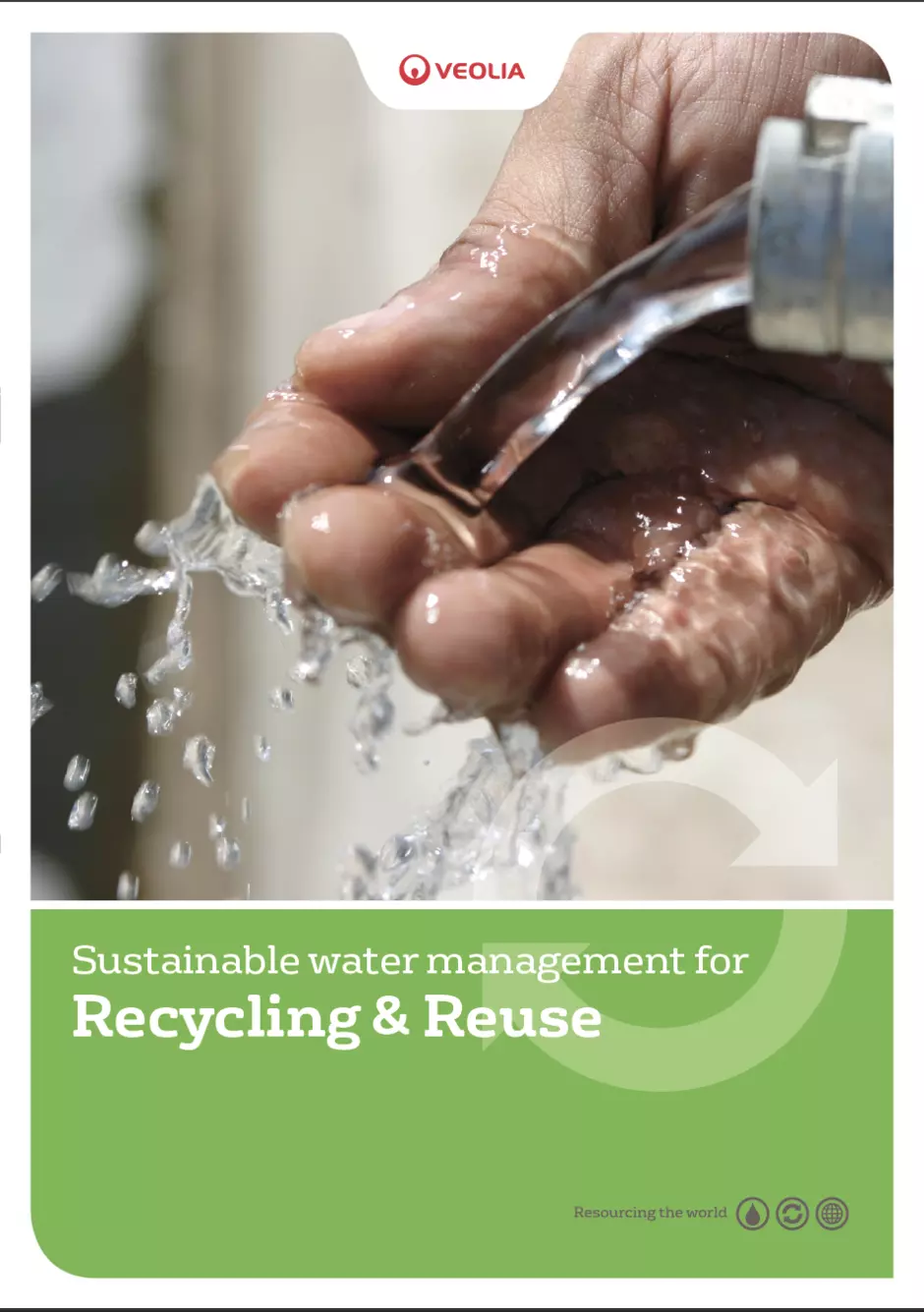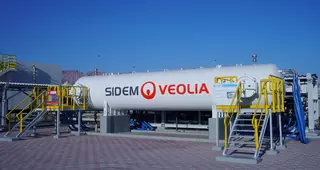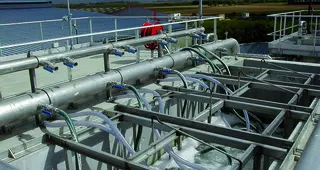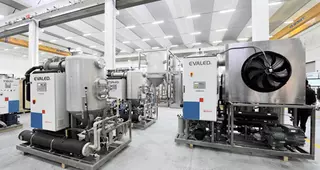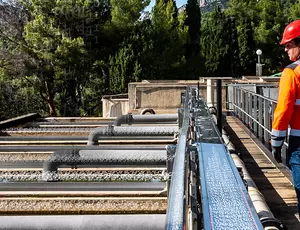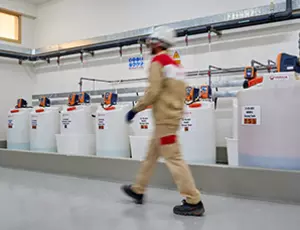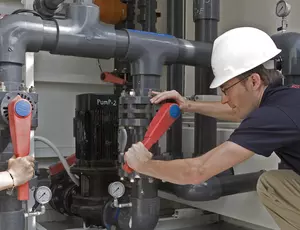Wastewater is continuously growing in volume due to the increase in domestic and industrial water consumption. The high cost of water transportation, as well as new environmental issues such as increasing water scarcity, make the topic of water reuse and wastewater recycling increasingly important.
Water reuse is the use of treated wastewater for beneficial purposes other than its initial use, such as for cooling systems, boilers, process water, irrigation, cleaning or groundwater recharge.
Domestic populations, as well as industrial transformation processes, consume large amounts of water resources on a daily basis and produce large quantities of wastewater. Reuse is a sustainable solution to optimize and mitigate water consumption, and tackle local water scarcity issues.
Regulations regarding the reuse of water are strict and vary from one country to another. Applications may include:
- Cooling of facilities.
- Water for boilers.
- Water for industrial processing.
- Agricultural irrigation.
- Watering of green spaces and golf courses.
- Storing and reusing groundwater, and salt intrusion barriers in coastal municipalities.
- Public fountains and street cleaning.
Reusing water is now an important issue for all sectors and all regions wanting to optimize their consumption, lower their costs and safeguard their operations from the growing scarcity of water. Reusing water in their industrial processes also helps companies save money and minimize waste processing costs.
Wastewater treatment plants can now be converted into biorefineries capable of producing energy as well as valuable by-products such as biopolymers. With our treatment technologies, municipalities are able to produce:
- Reusable water.
- Fertilizers.
- Nutrients.
- Thermal energy.
Reusing water offers significant advantages in terms of how much water is drawn from the natural environment, and in terms of conventional water supply costs.
Reuse is therefore a proven weapon for combating water shortage. It provides a constant and reliable water source at the places where such sources are necessary, and makes it possible to prioritize allocating freshwater resources to meeting drinking water needs.
How Veolia is committed to helping its clients increase their water reuse
In most industries, such as microelectronics, pulp and paper, power, food and beverage and oil and gas, the high volumes of water used during the overall manufacturing process represent a significant expense. Drawing upon its worldwide experience in industrial water cycle management, we have developed standard solutions for water recycling and reuse to support all industries.
Supporting clients to implement sustainable water reuse solutions
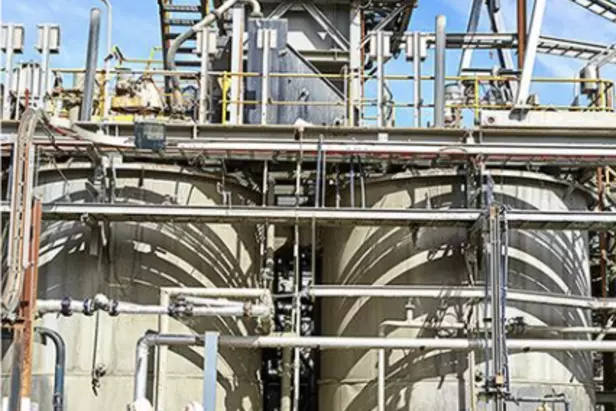
The Fosterville Gold Mine, located in Australia, experienced a significant increase in gold production due to exploration in 2018. The client wanted to implement a water treatment plant to treat the mine water to reuse it within their process water circuit.
Veolia Water Technologies designed and supplied a reverse osmosis solution, providing high-quality treated water for reuse, enhancing the mine’s sustainability and allowing the client to continue meeting its license conditions.
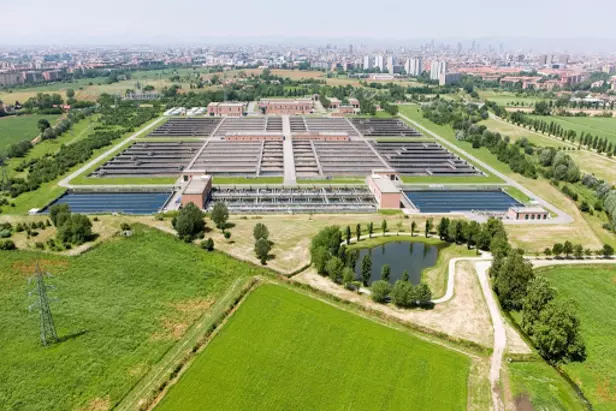
This challenging project reuses up to 60% to 70% of effluent for agricultural purposes. One of the largest plants in Europe treats wastewater “not only according to environmental directives, but also to have a circular use of the water,” explains Francesca Pizza, process manager at the Nosedo wastewater treatment plant.
We help our client optimize the whole wastewater system by integrating the operation of the sewer system and the wastewater treatment plant, saving energy and chemical consumption and increasing its hydraulic capacity.
Reusing wastewater: a vital issue
Wastewater is continuously growing in volume due to the increase in domestic and industrial water consumption. The high cost of water transportation, as well as new environmental issues, make the topic of water reuse and wastewater recycling increasingly important.
This wastewater is polluted by organic compounds, bacteria and other harmful elements, and yet it now constitutes as a fully recoverable resource thanks to the progress of recycling techniques. We have developed a wide range of innovative solutions to improve the environmental impact of water consumption.
Steam condensate recovery and return
Condensate is a high-purity, high-heat content water, and even the smallest quantity recovered is often economically justifiable which is very appreciated in municipal and industrial applications alike.
Reusing condensate minimizes the need for additional, cold makeup water that would require treatment and heating, which would incur additional costs. By returning condensate to the boiler feed tank, the need for boiler blowdown is reduced which saves money by reducing the energy lost from the boiler during the blowdown process.
Condensate is a potentially valuable resource as it is high-purity, contains virtually no total dissolved solids and has high heat content.
The purity and absence of dissolved solids make condensate ideal for use as boiler feedwater.
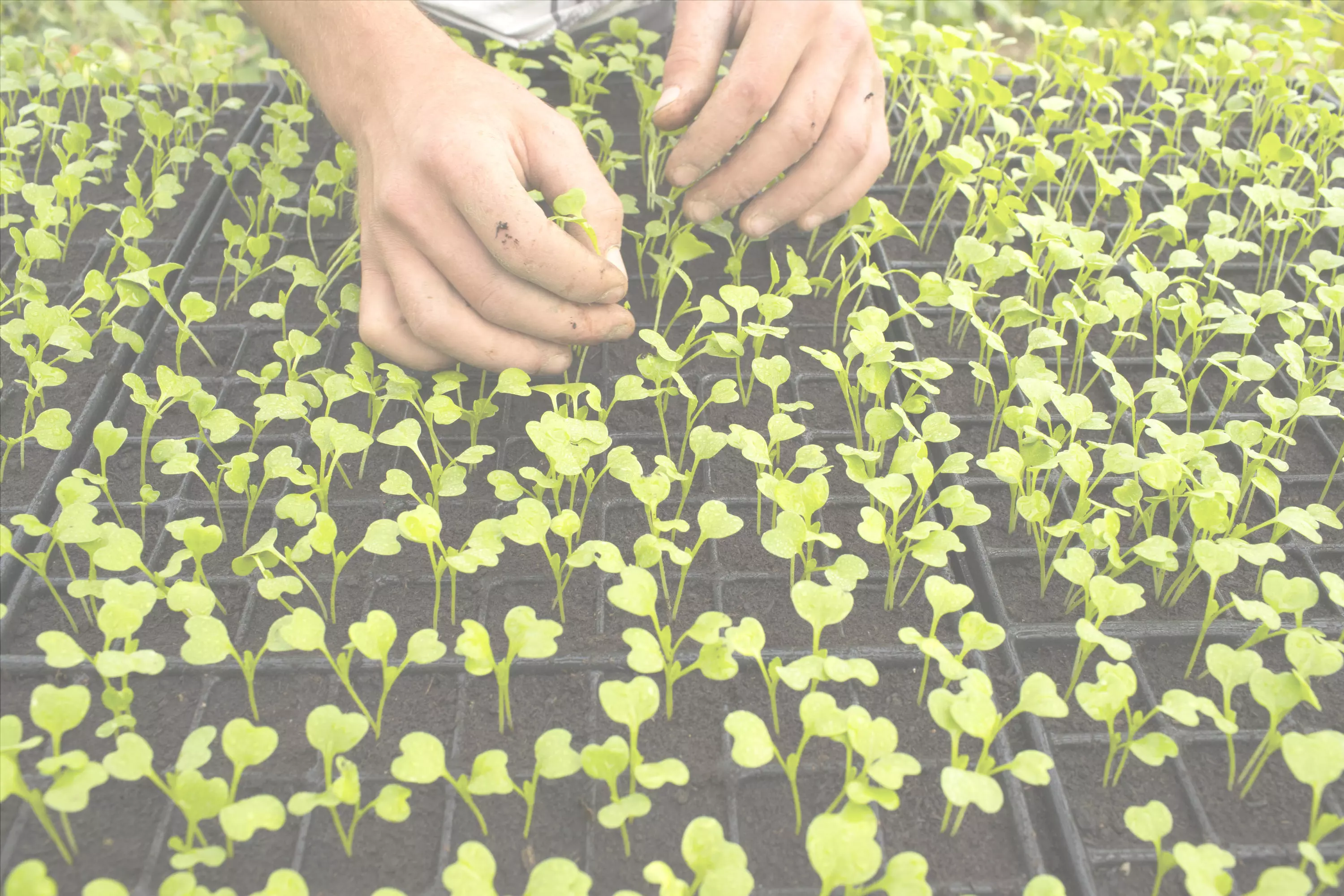
Discover our solutions for water reuse
Water reuse generally takes place by combining several processes or technologies depending on the cases, such as biological or physico-chemical treatment, clarification, gravity and/or membrane filtration, evaporation, disinfection, demineralization, and advanced oxidation.
Based on our full portfolio of standard processes and technologies we build water reuse lines that are tailored to meet each customer’s objective and comply with each application’s required regulations.
Technologies - Water reuse
Would you like more information about our technologies for water reuse?
Many companies find sustainability targets for water increasingly challenging to meet. Local operators require the support of global water treatment specialists to reduce water usage by optimizing applications, reusing in-process water and applying advanced tertiary treatments to allow for the reuse of wastewater. Digital services also play a key role by maintaining and improving operational resilience and efficiency over time. For many companies, water reuse and recycling projects go far beyond their inclusion in the annual report and are in fact essential to the long term viability of operations.

Robert KOCH
Manager Industrial Applications
Veolia Technologies & Contracting - Design Centre
Contact Robert through his LinkedIn account
More services for water reuse
FAQ about water reuse
What is the difference between water reuse and water recycling?
- Water recycling normally involves only one use, and the effluent is treated and redirected back into the same loop for the same use. It can also be used when wastewater is treated and used again in the process.
- Water reuse is the use of treated wastewater for beneficial purposes other than its initial use, such as cooling systems, boilers, process water, irrigation, cleaning or groundwater recharge.
What factors affect the choice of water treatment technologies for recycling water?
Four key factors influence the choice of treatment line for recycling water within industry:
- The quality of the wastewater to be treated.
- The application for which the recycled water will be used.
- The configuration of the industrial site.
- Local legislative requirements.
What are the water quality requirements for reusing water within industry?
Quality requirements vary for different applications and industries, but some broad generalizations may be made for industrial water, cooling water, process water and boiler feed water.
Technical resources
Find related content below. If you can’t find exactly what you are looking for, please contact us for further assistance.
References
Automobile
General Motors Cactus plant in San Luis Potosi, Mexico
- Zero Liquid Discharge process design, basic engineering and equipment supply.
- High quality water for reuse.
- High recovery rate with low waste volume (convert 90% of the tertiary wastewater into reusable water).
Food production
Pharmaceutical production
Zimmer Orthopaedics manufacturing, Ireland
Pfizer, Shanbally, Ringaskiddy, Co. Cork
Mining
Fosterville gold mine in Victoria, Australia
Pulp and paper industry
Smurfit-Stone Container, Corporation, Hopewell, United States.
Oil and Gas
SHELL Qatar, Pearl GTL complex, Qatar.
Reusing municipal wastewater after treatment
Copenhagen - a city becoming resilient to flooding
Disneyland Paris
Camp de Tarragona Petrochemical Park, Tarragona



